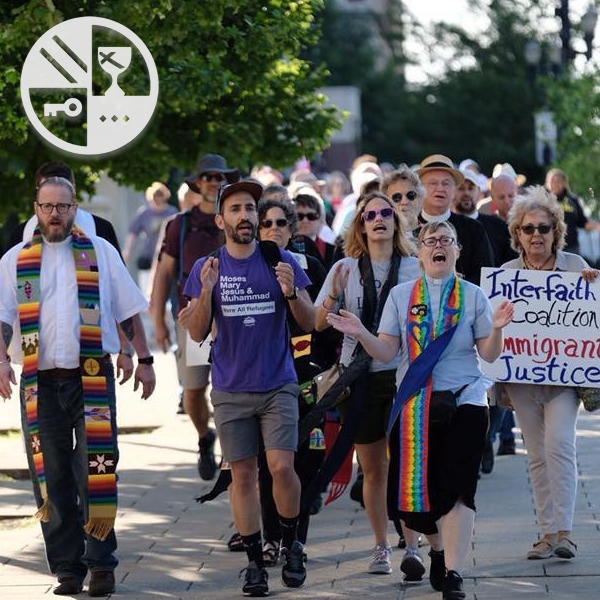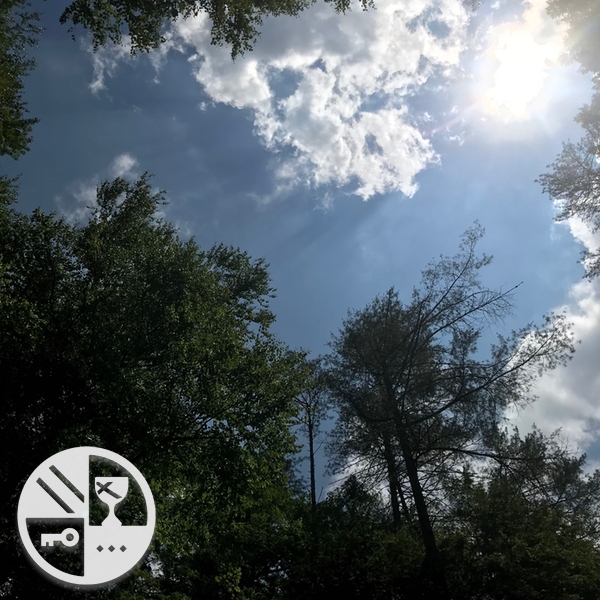By Derek Penwell
I woke up this morning, and when I turned over and looked at the alarm clock, I knew the night’s sleep would be stolen from me. My mind raced like an undernourished Chihuahua on crack.
I staggered out of bed, and here I sit at the computer.
Life is suffering—at least that’s what the Buddha said is the first noble truth. In other words, if you don’t know anything else, the one thing you know (even if you don’t know it) is that at the heart of the human experience something is goofed up.
My students often get hung up on the word suffering, because to say that life is suffering strikes them as too morose. “I can see the sunrise. I sing songs. I love. Life isn’t all, or even primarily, suffering.”
But by suffering the Buddha didn’t just mean the kind of agony you experience when you hit your finger really hard with a hammer (which I did one summer when I was framing houses during seminary, and holy crap!) or when you find out that your blind date only knows how to talk about conspiracy theories concerning one wold governments run by intelligent cyborgs or the Illuminati … or both.
Dukkha, the Pali word for suffering, means more than just pain; it means stress, or disturbance, or dislocation, or the nagging feeling—often beneath the threshold of awareness—that something isn’t right.
Now, there’s a great deal involved in describing the causes of dukkha that I won’t go into. What I’m interested in at the moment is what we do about it.
The Buddha said that the way we deal with dukkha is most often by avoiding thinking about it. We distract ourselves.
I went to the abbey at Gethsemani some years back. The guest master at the time, Father Damian (before he became abbot) said, “We can give you a gift here that you cannot get almost anywhere else in the world—silence. Enjoy it. For it is from the silence that God speaks. Embrace the silence. Listen for God.”
Like the Buddha, Father Damian said that the reason silence is so rare is that people want to hide from the silence, to distract themselves. That’s why, he continued, the first thing people do when they get into their cars is turn on the radio. It’s why people flip on the television as soon as they walk in the house. They don’t want the silence to find them.
Dukkha confronts us in the silence, reminding us that everything is not as it should be. We grasp foolishly for that which we cannot possess.
We treat as permanent that which is fleeting—and when it disappears or dies, we suffer.
We deceive ourselves about who we are, about what is valuable, about the nature of the world, and even about the causes and the extent of our travail—and when the silence speaks the truth to us, the suffering surfaces.
Or maybe, as Father Damian suggested, it is God who speaks truth to us in the silence.
If I’m honest, the silence that most frightens me is the one that descends in the night. I wake up, and the silence screams. In the light of day, I have—as, I suspect, do we all—the well-worn methods of distracting myself from having to sit in the presence of the silence.
But at night the silence steals into my room. The habits I’ve cultivated for avoiding silence desert me when the house is dark and everyone lies sleeping, leaving me in the hungry presence of truth. I say “hungry,” because I feel devoured by the truth, as though my life and the defenses of illusion I’ve built seem to vanish in painful bites.
I’m not talking about the terrors of the night, where our senses are heightened and we’re sure that we heard someone trying to move silently through the house, or convinced that the baby has stopped breathing, or worried because we haven’t’ heard the sump pump turn on in quite a while and there’s a heavy storm going on just outside the window …
No. I mean the silence that reveals me to myself:
- Why don’t you take better care … of yourself, of your wife, of your children, of your friends, of your car, of the house? (The list can be endless.)
- Why aren’t you more diligent about living what you say you believe?
- When do you think everyone will finally see what a fraud you are … as a writer, as a professor, as a minister, as a human being? (Again, the list can get rather long.)
- Why are you so afraid of the silence?
But here’s the thing: If God is to be found in the silence, then no matter how uncomfortable, that’s where I need to be. Avoiding the truth doesn’t make it go away; it just makes it that much more unlikely that I’ll recognize it when it confronts me.
There’s no justice, no peace without truth. And if I care anything about the former, I’m going to have to embrace the latter—which means that somewhere along the line, I’m going to have to learn to love the silence.




















